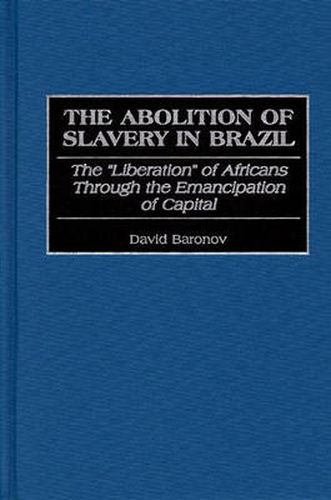Readings Newsletter
Become a Readings Member to make your shopping experience even easier.
Sign in or sign up for free!
You’re not far away from qualifying for FREE standard shipping within Australia
You’ve qualified for FREE standard shipping within Australia
The cart is loading…






The persistence of a raced-based division of labor has been a compelling reality in all former slave societies in the Americas. One can trace this to nineteenth-century abolition movements across the Americas which did not lead to (and were not intended to result in) a transition from race-based slave labor to race-neutral wage labor for former slaves. Rather, the abolition of slavery led to the emergence of multi-racial societies wherein capital/labor relations were characterized by new forms of extra-market coercion that were explicitly linked to racial categories. Post-slavery Brazilian society is a classic example of this pattern.
Working within the context of the origin of the wage labor category in classical political economy, Baronov begins by questioning the central role of wage-labor within capitalist production through an examination of key works by Smith, Ricardo, and Marx, as well as the historical conditions informing their analyses. The study then turns to the specific case of Brazil between 1850-1888, comparing the abolition of slavery in three Brazilian regions: the northeast sugar region, the Paraiba Valley, and Western Sao Paulo. Through this analysis, Baronov provides a critique of the dominant interpretation of abolition (as a transition from slave labor to wage labor) and suggests an alternative interpretation that places a greater emphasis on the role of non-wage labor forms and extra-market factors in the shaping of the post-slavery social order.
$9.00 standard shipping within Australia
FREE standard shipping within Australia for orders over $100.00
Express & International shipping calculated at checkout
The persistence of a raced-based division of labor has been a compelling reality in all former slave societies in the Americas. One can trace this to nineteenth-century abolition movements across the Americas which did not lead to (and were not intended to result in) a transition from race-based slave labor to race-neutral wage labor for former slaves. Rather, the abolition of slavery led to the emergence of multi-racial societies wherein capital/labor relations were characterized by new forms of extra-market coercion that were explicitly linked to racial categories. Post-slavery Brazilian society is a classic example of this pattern.
Working within the context of the origin of the wage labor category in classical political economy, Baronov begins by questioning the central role of wage-labor within capitalist production through an examination of key works by Smith, Ricardo, and Marx, as well as the historical conditions informing their analyses. The study then turns to the specific case of Brazil between 1850-1888, comparing the abolition of slavery in three Brazilian regions: the northeast sugar region, the Paraiba Valley, and Western Sao Paulo. Through this analysis, Baronov provides a critique of the dominant interpretation of abolition (as a transition from slave labor to wage labor) and suggests an alternative interpretation that places a greater emphasis on the role of non-wage labor forms and extra-market factors in the shaping of the post-slavery social order.